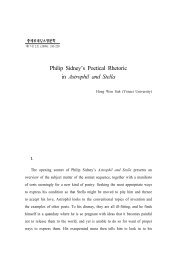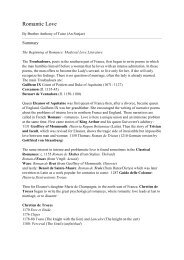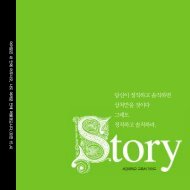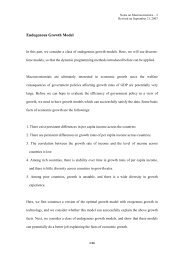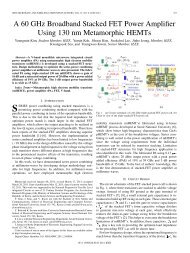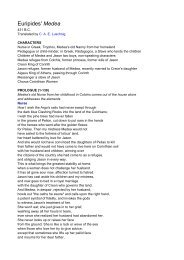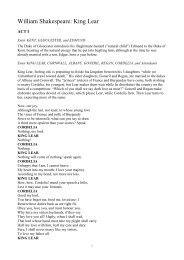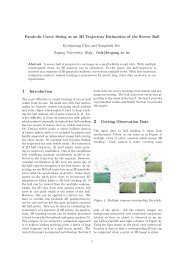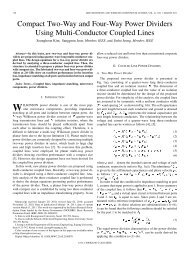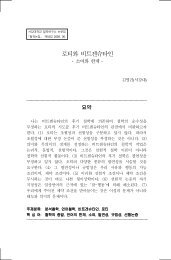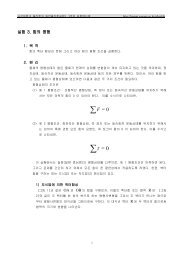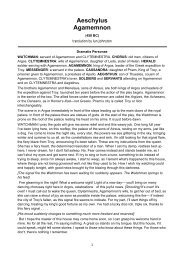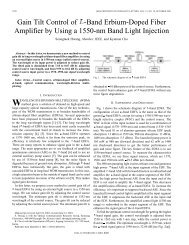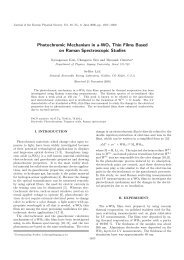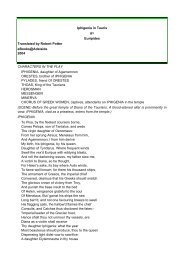THE KOREA REVIEW Volume 1, 1901 Homer B. Hulbert A.M. ...
THE KOREA REVIEW Volume 1, 1901 Homer B. Hulbert A.M. ...
THE KOREA REVIEW Volume 1, 1901 Homer B. Hulbert A.M. ...
Create successful ePaper yourself
Turn your PDF publications into a flip-book with our unique Google optimized e-Paper software.
sent an envoy and made friends with the King of Che in China. He also revised the penal code and<br />
made the theft of a hundred million cash from the government or of a hundred and fifty millions from<br />
the people a capital crime. He ordered the construction of a building of 500 kan for an asylum for<br />
widows, orphans and aged people who were childless, In 634 one of the wild tribes of the north sent<br />
their chief, Kil-i-de-du, to swear allegiance to Cho-sun. In 659 there came to Korea from the Chu<br />
Kingdom in China a man by the name of Puk Il-jung, who brought with him a medi- [page 44] cine<br />
called myun-dan-bang which he claimed was the elixir of youth. By his arts he succeeded in gaining<br />
the ear of the king and for many years was virtually ruler of the country. At last a king came to the<br />
throne who had the wisdom and nerve to order his execution At this the whole land rejoiced. Banished<br />
men were recalled and prisoners were liberated. In 593 King Ch’am came to the throne at the age of<br />
five. His uncle acted as regent. But a powerful courtier Kong Son-gang secured the regent’s<br />
assassination and himself became virtual ruler. He imprisoned the king in a small pavilion and tried to<br />
make him abdicate, but in this was unsuccessful and himself met the assassin’s steel. In 560 the Ha<br />
tribe, inhabiting the northern Japanese island of I-so, sent their chief, Wha-ma-gyun-hu-ri, to swear<br />
allegiance to Cho-sun. In 505 the wild tribes to the north became restive and King Yu gathered 3000<br />
troops and invaded their territory, taking 1000 heads and adding a wide strip of country to his realm.<br />
He put teachers in each of the magistracies to teach the people agriculture and sericulture. In 426,<br />
during the reign of King Cheung, occurred a formidable rebellion. U Yi-ch’ung of T’a-an (now Chasan)<br />
arose and said “I am the Heaven Shaker.” With a powerful force he approached the capital and<br />
besieged it. The king was forced to flee by boat and take refuge at Hyul-gu (probably an island). But<br />
not long after this the loyal troops rallied about the king and the rebel was chased across the northern<br />
border. In 403 the king of Yun sent an envoy to Korea with greetings. This Yun kingdom had its<br />
capital at Chik-ye-sung where Peking now stands, and its territory was contiguous to Cho-sun on the<br />
west. But in spite of these friendly greetings the king of Yun sent an army in 380 and seized a district<br />
in western Cho-sun. They were soon driven back. Fifteen years later a Yun general, Chin-gan came<br />
with 20,000 troops and delimited the western border of Cho-sun but the Cho-sun general Wi Mun-un<br />
gathered 30,00a men and lying in ambush among the reeds beside the O-do River surprised the enemy<br />
and put them to flight. In 346 a wild chieftain of the north came and asked aid against Yun. It was<br />
granted to the extent of 10,000 troops. These with 1000 cavalry of the wild tribe attacked and took the<br />
border fortress of Sang-gok. Soon after, Yun sued for peace and it was granted. [page 45]<br />
This ends the apocryphal account of the Ki-ja dynasty. Its contents are circumstantial<br />
enough to seem plausible yet we cannot but doubt the authenticity of any records which pretend to go<br />
back to such a remote period.<br />
The Chou dynasty in China had long been on the decline and now, in 305 B. C. had reached .<br />
a point of extreme weakness. In view of this the governor of the tributary state of Liao-tung who had<br />
always passed under the title of Hu or “Marquis” dared to assume the title Wang or “King” and so to<br />
defy the power of China. Chosun threw herself into the balance in favor of her great patron and<br />
hastened to attack Liao-tung in the rear. But before this course had become inevitable a warning voice<br />
was raised and one of the councillors, Ye, who was gifted with more knowledge of the signs of the<br />
times than his fellows pointed out the inevitable overthrow of the Chou dynasty, and he advised that<br />
Cho-sun make her peace with the new “King” of the Yon kingdom of Liao-tung, rather than brave his<br />
anger by siding against him. The advice was followed and Cho-sun threw off the light reins of<br />
allegiance to China and ranged herself alongside the new kingdom. This we learn from the annals of<br />
the Wei dynasty of China. But apparently Chosun, stretching as it did to and beyond the Liao River,<br />
was too tempting a morsel the ambitious king of Yun to leave untasted. So he picked a quarrel with<br />
the king of Cho-sun and delimited his territory as far as the Yalu River, a stretch of 2,000 li, even to<br />
the town of Pan-han whose identity is now lost. He followed up this success by overcoming the wild<br />
tribes to the north and added 1,000 li more to his domains, securing it from attack, as he supposed, by<br />
building a wall from Choyang to Yang-P’yung.<br />
When Emperor Shih of the Tsin dynasty ascended the throne of China in 221 B. C. and soon<br />
after began that tremendous work the Great Wall of China, the fortieth descendant of Ki-ja was<br />
swaying the scepter of Cho-sun under the name Ki-bi, posthumous title Chong-t’ong Wang. As soon<br />
at: the news of this great undertaking reached the ears of this monarch he hauled down his colors and<br />
surrendered at discretion, sending an envoy to do obeisance for him.



